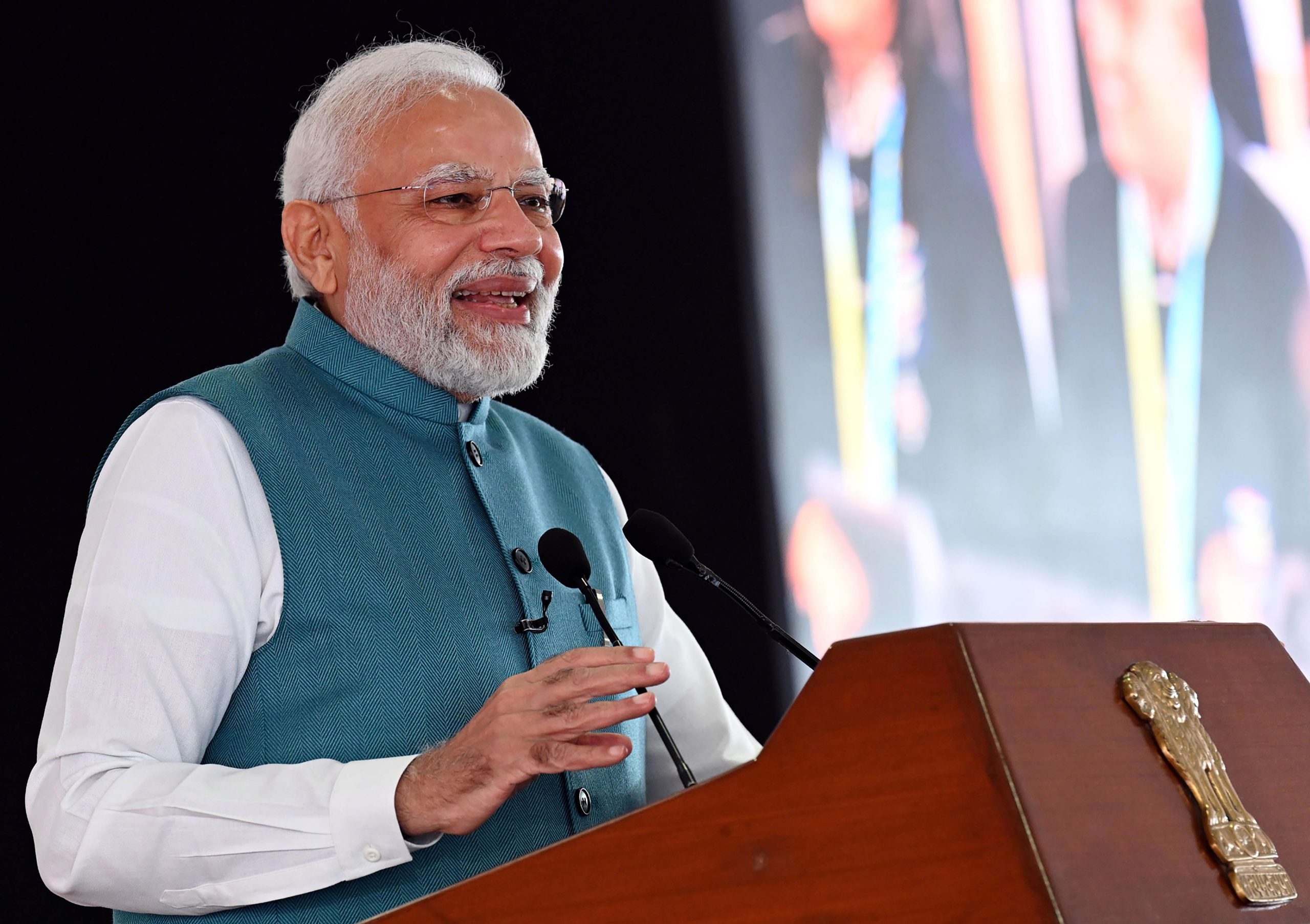New Delhi: Slamming those who engage in “selective interpretation” of human rights with an eye on political gains and loss, Prime Minister Narendra Modi said on Tuesday that such conduct harms human rights as well as democracy.
Speaking at the 28th foundation day of the National Human Rights Commission (NHRC), Modi said the country should be wary of such people who try to dent its image in the name of raising the issue of human rights violations.
In his speech, Modi highlighted a number of measures taken by his government to empower the poor, women and persons with disabilities and prevent injustice against them, before launching a scathing criticism of those who choose to see human rights violations in some incidents and not in others.
“There is another aspect associated with human rights which I want to speak about today. In recent years, some people have begun interpreting human rights in their own ways prioritising their interests.
“They see human rights violation in one incident but cannot see it in another incident of similar nature. Such mindset harms human rights a lot,” he said.
He added, “Human rights suffer a great deal when they are looked at through a political prism and considered according to political gains and loss. Such selective conduct harms democracy a great deal too.”
Though Modi did not name any person or organisation, the ruling BJP has been critical of a section of human rights groups, including those with a global presence, claiming they have highlighted cases of alleged rights violations selectively and in a one-sided manner to target the government.
The prime minister stressed that duties are equally important as rights and they should not be discussed separately as they complement each other.
Highlighting his government’s efforts during COVID-19 to help the poor, including providing free grains and cash transfer to the elderly and other vulnerable sections, Modi said a pandemic in such a big population has triggered instability in society in the past but India proved all apprehensions wrong with its work for the rights of the common man.
“India on the one hand has been courageously fighting a once-in-a-lifetime global pandemic while on the other it has ensured that the basic rights of every individual are respected,” Modi said.
“I feel proud that even at the peak of COVID-19, 80 crore Indians got access to free food grains,” he said, adding that the mantra of ‘sabka saath, sabka vikas, sabka vishwas, sabka prayas’ guarantees human rights to every person.
He also touched on pro-farmer steps like cash transfer and crop insurance and said production of crops hit a record during the crisis due to these efforts as farmers are no longer forced to take debts from others.
He cited a number of measures taken by his government during the last seven years to deliver basic needs like toilets, cooking gas, electricity and homes to the poor and said this gives rise to their aspirations and makes them more aware of their rights.
Modi said the concept of human rights is closely related to the dignity of the poor and when their basic needs like toilets, housing, bank accounts or cooking gas are taken care of, then they also grow more aware of their rights.
He said by making a law against ‘triple talaq’, his government has bestowed new rights on Muslim women.
The NHRC, India’s apex rights body, was set up under the Protection of Human Rights Act, 1993, on October 12, 1993, for the promotion and protection of human rights.
The NHRC takes cognisance of human rights violations, conducts enquiries and recommends compensation to victims from public authorities besides other remedial and legal measures against the erring public servants.
Modi said freedom struggle and India’s history are a big source of inspiration and values for human rights.





